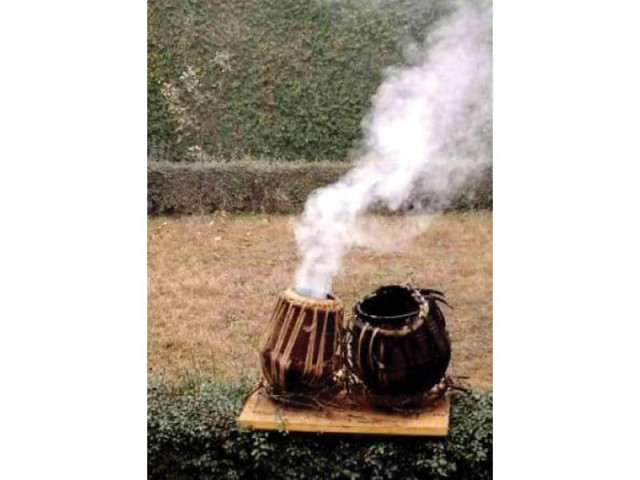Beyond revival: Swat’s music industry loses its sheen
Famous families of musicians ceased to perform

PHOTO: EXPRESS
Even though efforts were made to restore it after wars had subsided, music community, particularly in Banr, never regained its past grandeur.
In a report released on Wednesday by Pakhtunkhwa Cultural Foundation (PCF), the deplorable condition of musicians and their art was highlighted. It traced the past and focused on how the situation has not improved despite improvement in circumstances.
State of downfall
PCF head Muhammad Rome told The Express Tribune militants had marched into his house and threatened to chop his fingers off if he dared to play instruments again.
“Now years have passed, the situation is said to have normalised, however, trauma of war remains,” he said.
Rome also said prolonged instability in the region has caused many professional musicians’ families that were once a major feature of cultural life in the region to dwindle.
“The number of professional families has fallen drastically, from 80 in the 1980s to 25 today,” the document read. PCF head said militants had declared war on music – they had removed instruments from their houses, doused them with petrol, and set them ablaze in front of their eyes. “These are the instrument with which they have earned their sources of living for several decades,” Rome said.
In tune: Singers enthral Swat audience
He added public concerts had ended in Swat and the rich culture of the region was suffering. “Before wars no one could have imagined that music will almost cease to exist,” he stated. “Now that wars have ended, who will take efforts to protect and support the living arts?” “There are no open musical performances here anymore,” singer Kainat told The Express Tribune. She added music programmes were held in Peshawar and in areas surrounding Swat but all of them were indoors.
Persistent repercussions
The report also reveals that artistic life and culture industry was still struggling despite the fact that the Taliban were ousted more than seven years ago. Due to fear and trauma, shopping complex owners no longer allow trade of CDs. “Around 200 CD shops have closed in Swat, cinemas have shut down and exhibition centres lie deserted,” the report stated.
Rome said, “The incumbent K-P government claims it has revived the cultural life of the province but they are lagging far behind this goal.”
Rome emphasised that if true and long-lasting peace was prevailing in Swat, lost socio-cultural spaces needed to be regained.
Cultural expert and cultural activist Usman Ulasyar who also heads Svaustu Arts and Culture Association (SACA) said, “Banr should have been granted the status of a musical institution.” He said terror has dealt a critical blow to music – due to the fear instilled by militants, many people have started to abhor music.
Freemuse Executive Director Ole Reitov, who sponsored PCF study, told The Express Tribune, “When the world talks about destruction of cultural heritage by militants, there is a tendency to focus on sculptures, museums and monuments only.”
He added the report shows the importance of addressing the impact conflicts have on living heritage, music, cinema and other artistic expressions as well as public’s right to access them.
Modus operandi
The report was prepared after interviews with leading artists in Swat who had left the profession were conducted.
It also shed light on historical events – from the merger of Swat State with Pakistan, impacts of the Zia regime, militant uprisings in 1994, making of Banr music community till the period of crises and prevailing consequences of those violent conditions.
Published in The Express Tribune, June 30th, 2016.













COMMENTS
Comments are moderated and generally will be posted if they are on-topic and not abusive.
For more information, please see our Comments FAQ